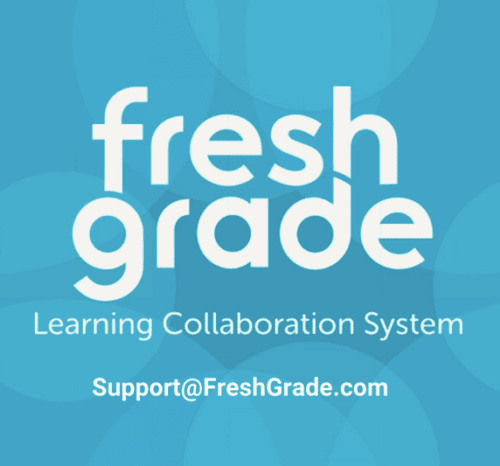 During my first years in the classroom, I coined the phrase: “Show What You Know” and used it as a euphemism for a test or quiz. The phrase came about not because of a specific philosophy, but was born of a need to reassure and focus my students on their learning. Students are conditioned to fear tests and to argue for points and grades. I want them to see a summative assessment as an opportunity to celebrate their achievements and learn from mistakes. I don’t want them to view assessments as punishments or something to dread. By using the power of language and renaming assessments, I set the tone for learning. And my German students adapt quickly and will remind me if I slip and refer to an assessment as a test. They correct me with, “Nein Frau R. — it’s a ‘Zeig Was Du Kannst’ — nicht ein Test!” Together we create a classroom culture that values the process of learning and celebrates increasing proficiency.
During my first years in the classroom, I coined the phrase: “Show What You Know” and used it as a euphemism for a test or quiz. The phrase came about not because of a specific philosophy, but was born of a need to reassure and focus my students on their learning. Students are conditioned to fear tests and to argue for points and grades. I want them to see a summative assessment as an opportunity to celebrate their achievements and learn from mistakes. I don’t want them to view assessments as punishments or something to dread. By using the power of language and renaming assessments, I set the tone for learning. And my German students adapt quickly and will remind me if I slip and refer to an assessment as a test. They correct me with, “Nein Frau R. — it’s a ‘Zeig Was Du Kannst’ — nicht ein Test!” Together we create a classroom culture that values the process of learning and celebrates increasing proficiency.
As I developed my teaching philosophy, I added other coaching phrases to my repertoire: “Mistakes are good things!” and “Mistakes are where the learning happens!” The idea that an assessment should be limited to a pencil and paper exercise or a multiple-choice test didn’t make sense to me. In a World Languages classroom, assessments of proficiency could come in the form of a conversation or a skit or song. How was I to quantify these moments in terms of points or grades? And why should an assessment be a static, “one and done” moment in time? Wouldn’t my students be better served by receiving my feedback and trying again? The chance to reflect and redo makes sense to me. When provided with on-going, dynamic, actionable feedback, students learn from mistakes and make progress. It is only recently that I have incorporated a strategy that allows my students to demonstrate their learning and receive meaningful feedback from me, while also sharing their achievements with their parents. The FreshGrade digital portfolio tool is transforming my classroom and helps us to move away from a grade-based tradition and allows a student to “Show What You Know.”
The FreshGrade tool allows us to focus on the learning journey, to document progress and to include parents in the conversation. My students hear me preach: “It’s not about grades – it’s about the learning!” But it isn’t easy to change the letter grade culture. Students still feel the pressure to earn “all A’s” and many parents value a bumper sticker that reads: “My child is an honor student.” As a high school teacher, the culture demanded that I give semester and final exams, then assign and report grades. My students, and their parents, were concerned with grade point averages and scholarship awards. As a middle school teacher, the pressure is less, but the challenge is the same. Our reality is that we operate within a system that uses the language of grades to communicate about student achievement. This is the status quo, so we struggle to navigate these dueling systems; we strive to put learning first while at the same time attempting to accurately report learning using traditional letter grades. It is challenging and frustrating, but because of our efforts trusting relationships are formed. In my experience, it is these relationships that provide the foundation for learning.
The struggle to accurately assess and report learning is an ongoing challenge, but one that has become easier because of FreshGrade. This resource has fundamentally changed the conversations my students and I have about their learning. It has enhanced communication about learning between my students, their parents and me. Using FreshGrade, together with an emphasis on standards-based instruction and assessment, provides us with a wonderful way to “Show What We Know.” With FreshGrade, I simply post a learning target or proficiency task, and the students upload evidence of their learning. I can then assess the student’s progress toward achieving the target and enter into a conversation that might involve re-teaching or redo’s, or asking a student to reflect on his own progress. When the student meets the target, his digital portfolio evidence can be immediately shared with parents. Parents may join the conversation at any time as they share in their child’s journey toward achieving a specific goal.
Over the past 25 years of my teaching career I’ve experienced the push and pull between my instincts about what was best for my students, and the directives and expectations of a traditional grade-based school culture. I have continued to make adjustments and I have grown in my practice. Last year, before discovering FreshGrade, I assigned a Video Progress Report, to help to facilitate a conversation about the learning as well as to update parents. A current student discovered her old video which she had saved on her Google Drive and posted it with a current video. She wrote: “I posted my video from a year ago. I feel proud of myself that I have progressed so much in German! And will keep progressing! Danke Frau for making that happen!”
In another exchange on FreshGrade I commented: “I’m assessing this as a 1 — not yet — just because I can’t tell if you were reading or speaking spontaneously? Did you mean to record just your voice? Let’s talk about re-submitting another clip of you talking about yourself – but unscripted, okay? You can do this!” And my student responded “Frau R. I am submitting another video. To me this one IS GREAT! I feel so proud of myself!”
Parents are able to use FreshGrade to comment directly to their child: “I am very proud to see what she can do in German class. It is very nice and I very much enjoyed it!” FreshGrade encourages student ownership, allows for dynamic feedback, documents learning and involves parents. Today, I am confident that I am doing a better job of facilitating true learning for my students and FreshGrade has proven to be an extremely useful tool in helping me to do so.
In my World Language classroom our focus is on the learning, not on grades. Students work toward proficiency and they are increasingly owning their own learning. They no longer discuss points or argue over grades and we have meaningful conversations about their learning. Together we review learning targets and portfolio evidence and when we need to, we determine a grade to put in the gradebook. Letter grades and averages do not tell the whole story. Letter grades and averages do not “Show All That We Know.” A digital portfolio system like FreshGrade helps us to have a meaningful conversation about learning and best serves the needs of my students.
In addition to FreshGrade, I have begun using Twitter as a professional development resource and have joined a Facebook Group called: TTOG – Teachers Throwing Out Grades. These connections via social media have helped me to collaborate with other professionals who share my philosophy. At the same time, our school system has been implementing a move toward Standards Based instruction and assessment. This new focus on student ownership of learning and a move toward assessing proficiency relative to learning targets is affirming to me. I am collaborating with my colleagues to examine our assessment practices and to move away from our grade-based culture. These changes better serve the needs of students and fit my philosophy of teaching.
I have recently added yet another phrase to my teacher lexicon. At the close of each class I now take time to thank my students saying: “Danke für das Lernen” ~ “Thanks for the learning.” The power of this short statement has been significant. My students are now thanking me for helping them to learn. In their FreshGrade comments as well as in their written journal reflections, my students are saying “Danke” back to me. These are the relationships that continue to instruct me and to provide me joy. As I near the end of my teaching career I’ve stopped battling the status quo and stopped feeling compelled to employ practices that I know are not helpful to my students. With tools like FreshGrade and a focus on standards-based instruction and assessment, I am better able to guide my students on their learning journeys. I can help them to “Show What They Know.” I can join in a celebration of learning with my students and their parents. Finally, it’s about the learning!
- Education Weekly – Assessment and Testing
- Campus Technology – President-Elect Advised to Scale Personalized Learning
- The Guardian – Assessment for learning: are you using it effectively in your classroom?





